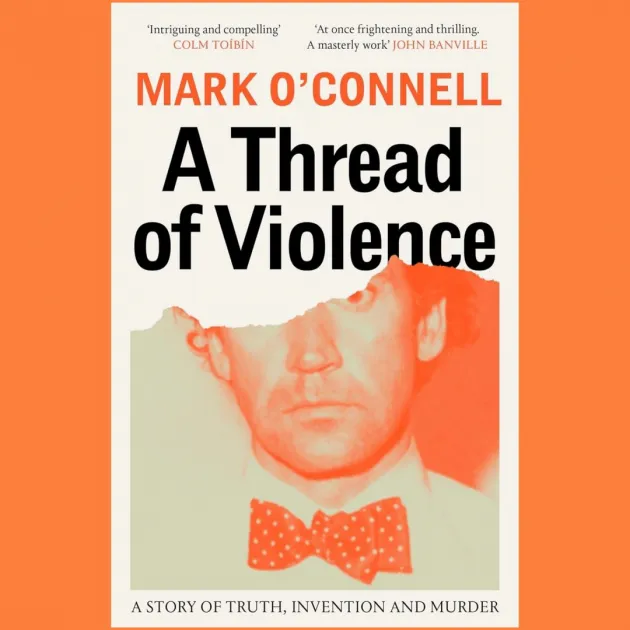Staff Pick: A Thread of Violence by Mark O’Connell
Published on 4th March 2025
I first became aware of Malcolm Macarthur and his infamous 1982 murders when I first heard the ‘GUBU’ acronym. ‘GUBU’ was Conor Cruise O’Brien’s summation of the political fallout from the murders as ‘grotesque, unbelievable, bizarre and unprecedented’. Reading Mark O’Connell’s fascinating account of the murders and his extensive interviews with the man who carried them out, it is hard to think of four more apt words for the whole affair.
The book gives an overview of Macarthur’s life up to the point of the killings. In his interviews with Macarthur, O’Connell seeks to tease out whether some of the speculation about his early childhood — if he was exposed to violence, if he was generally unwanted and poorly treated by his parents — played a major role in the crimes he went on to commit. Macarthur is adamant that there was little violence and that he had wonderful parents.
The book also covers (in less detail) parts of Macarthur’s life since leaving prison. Some of the anecdotes included here are darkly funny. For example, the story of Macarthur showing up to a literary event being attended by John Banville in order to talk to him. Banville had written a series of novels which featured a character who was a thinly-veiled version of Macarthur and was shocked to see him in attendance. Similarly, when Alan Shatter, the Minister for Justice who had sanctioned Macarthur’s release from prison, published a memoir, Macarthur showed up at the book launch to get a signed copy.
For the most part, however, this is an understandably heavy story, one that O’Connell handles sensitively and with a light touch. The author wrestles with the nature of his own relationship with Macarthur — he actively seeks to run into Macarthur in order to initially establish contact and strike up a rapport. When he has earned Macarthur’s trust and (at times it seems) friendship, he is equal parts fascinated and appalled by the man and what he did.
For me, the most interesting argument that O’Connell makes is his contention that neither killing was in any way necessary. Macarthur could have stolen the car and shotgun which he took from his victims without harming either of them. The violence which was committed was wholly superfluous. While O’Connell speculates and probes as to why the killings took place, he is never really able to find a good reason.
O’Connell writes incisively about Macarthur, the murders and indeed the political fallout. He is also open regarding his own doubts about covering the story and cultivating a relationship with Macarthur — fully cognisant that whatever rapport has formed between them during the interviewing process is inevitably a temporary one.
This is a brilliant, gripping book which tells a remarkable story. One worthy of the acronym ‘GUBU’.
Submitted by Peadar C, IT.
